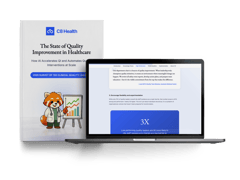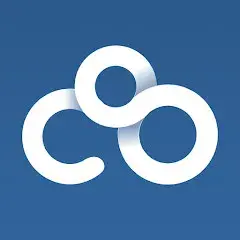
3 Strategies for Effective Knowledge Dissemination in Nursing
Regardless of the field of healthcare, it's crucial to stay up-to-date with the latest research, best practices, and advancements. Effective knowledge dissemination ensures that valuable insights and evidence-based practices are shared, leading to improved patient outcomes and enhanced healthcare delivery. This is true for all healthcare professionals, and nursing is no exception.
The earlier you're introduced to evidence-based, locally vetted best practices in your health professional training cycle, the better your chances of actually using this content. Plus, it can increase consistency in care.
Let's explore three strategies that can significantly improve knowledge dissemination in nursing to effectively bridge the gap between research and practice.
1. Create a centralized knowledge management platform
2. Optimizing decision-making through local vetting of content
3. Ensuring easy access to content at the point of care
Meet the Expert
Ido Zamberg M.D. is a board-certified physician (General Internal Medicine and Anesthesia), currently a Fellow at the Division of Experimental Medicine, McGill University Health Center, Montreal, Canada.
Why Is Effective Knowledge Dissemination Necessary in Nursing?
Effective knowledge dissemination is essential in nursing to ensure that nurses have access to the latest evidence-based information and best practices. This can help to improve patient care, reduce errors, and mitigate burnout and stress.
Nurses are often bombarded with information from a variety of sources, including textbooks, journals, websites, and EHRs. This can make it difficult to stay up-to-date on the latest guidelines and best practices. Additionally, nurses may not have time to search through multiple sources to find the information they need when they need it.
A centralized knowledge management platform can help to address these challenges by providing nurses with a single source for all nursing knowledge. This platform can be locally vetted to ensure that the information is relevant and accurate for the specific hospital or practice setting. Additionally, the platform can be integrated with the EHR system so that nurses can access the information they need directly from the patient's bedside.
Having access to up-to-date and evidence-based information can help to reduce nurses' stress levels and improve their job satisfaction. When nurses know that they're using the best practices to care for their patients, they feel more confident and empowered. This can lead to better patient outcomes and a more positive work environment.
Read our latest case study to learn how implementing C8 Health's knowledge management platform has impacted healthcare departments across the US:
1. Creating a Centralized Knowledge Management Platform
The first and most important strategy revolves around reducing the amount of knowledge bases nurses might need to interact with. When dealing with patient cases, it can be cumbersome to jump from one platform to another to find the information you need.
For example, a nurse may need to access a nursing textbook to learn about the latest treatment for a particular condition, then consult a journal article to read about a new research study, and finally check the EHR to see the patient's individual medical history. This can be time-consuming and inefficient, and it can also lead to errors if nurses can't find the information they need quickly.
If I have a protocol for kidney transplant or setup saved in Google Drive, and a related system policy for post-operative care stored in another software, having these key pieces of information scattered can be challenging and time consuming.
So, it's not surprising that 79% of nurses feel that a centralized knowledge management platform would improve their workflow. Therefore, the first strategy is to create a centralized knowledge management platform where all relevant guidance can be accessed easily. This means every question that arises can be answered through this single source. This approach simplifies the process and encourages nurses to use the resources more often because they know exactly where to look for answers.
2. Optimizing Decision-Making Through Local Vetting of Content
The second strategy involves a vetting process to ensure that the content on the centralized knowledge management platform is relevant and accurate for the specific nursing practice. This could mean sign-off from a nursing manager, clinical specialist, or other relevant stakeholders within the nurse's division or unit who can confirm that certain procedures and protocols are acceptable for use in the hospital. An estimated 60% of nurses feel uncomfortable making decisions without being properly informed, so effective knowledge dissemination can help to mitigate this.
Given the vast amount of general nursing information available online, it's important for nurses to be able to rely on information that has been specifically vetted for their workplace. This can help to ensure that nurses are making the best possible decisions for their patients.
Let's take COVID-19 as an example. Diagnosing COVID-19 isn't the problem-it's determining the appropriate course of treatment because it can vary depending on the specific hospital and its policies. For example, one hospital may decide to hospitalize a patient with COVID-19 and an oxygen level of 90%, while another hospital may send the patient home due to a lack of beds.
Locally vetted content can help nurses to make the best possible decisions for their patients in these situations. By referring to a protocol from their specific hospital, nurses can be sure that they're following the most up-to-date and evidence-based guidelines. This also provides hospital administrators with the reassurance that the right patients are being hospitalized and that resources are being used efficiently.
As a hospital administrator, I'd want everyone to be aware of the hospitalization criteria for COVID-19. To ensure this knowledge is disseminated, I'd want to make sure that when I create the protocol today, everyone is immediately made aware of it. For this to happen, efficient knowledge dissemination is key.
3. Ensuring Easy Access to Content at the Point of Care
Making the centralized knowledge management platform easily accessible at the point of care is crucial for nurses. Consider that over 70% of nurses use mobile devices, so optimizing content for mobile means nurses can access it from anywhere in the hospital or integrate it into the EHR system, letting them access it directly from the patient's bedside.
For example, a nurse could use a mobile app to access the knowledge management platform while they are rounding on their patients. This would allow them to quickly look up information about a particular condition or treatment, or to check the hospital's policies and procedures. Integrating the knowledge management platform with the EHR would also allow nurses to access information about a patient's medical history and current care plan without having to switch between different systems.
How C8 Health Can Help Disseminate Knowledge Among Nursing Staff
C8 Health consolidates specialized and relevant knowledge that, before now, was siloed between departments and professions. By bringing everything together under a single platform, everyone can access any knowledge in any format. The platform is designed to adapt to the point of care and integrate seamlessly into workflows, increasing awareness of this knowledge wherever it originates.
With C8, we ensure there's always an updated environment. Anytime and anywhere you go into the system, you know that this specific content-from one particular institution or point of service-is the most recent version of the protocol. This process is done automatically. Therefore, we streamline knowledge management and dissemination, tailoring it to healthcare.
Find out how anesthesiologist, Max Feinstein M.D., uses our platform to streamline medical guidance and collaboration.
Bridging the Gap: The Crucial Role of Effective Knowledge Dissemination
Effective knowledge dissemination in nursing is vital for improving patient outcomes and healthcare delivery. The three key strategies outlined here can revolutionize how nurses access and use information, thereby helping them identify and close healthcare gaps. By simplifying information retrieval, boosting decision-making confidence, and facilitating mobile access, these strategies promote standardization in care and empower nurses to make informed, evidence-based decisions that enhance healthcare practices and ultimately benefit patients.


